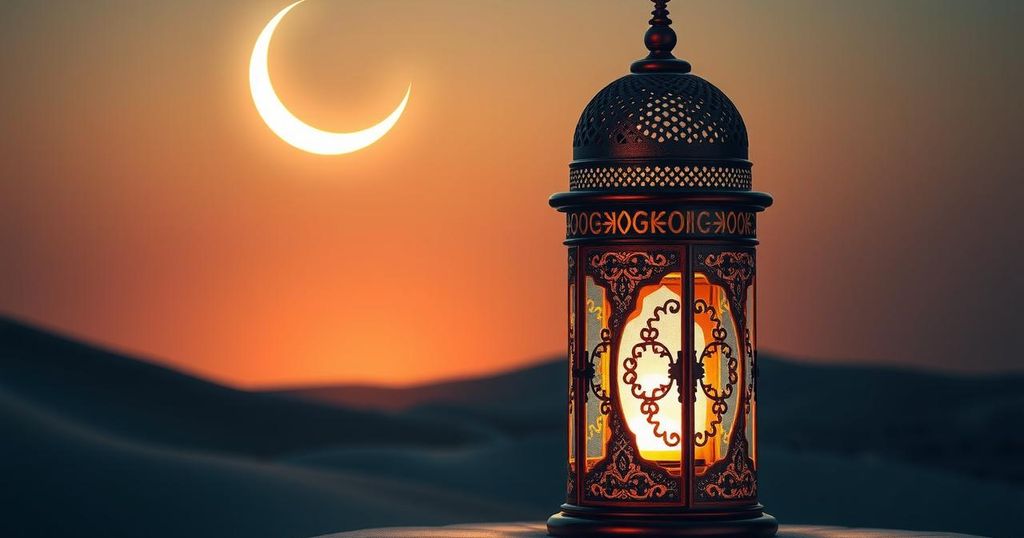Ramadan Observance in Pakistan: A Cultural and Spiritual Journey
Ramadan in Pakistan is a culturally rich period marked by fasting, community bonding, and charitable activities. Muslims engage in prayers and traditional iftar meals, reinforcing social connections. The observance is supported by media programming and community initiatives that promote health and spirituality.
The discourse surrounding Ramadan in Pakistan is imbued with cultural significance and community participation. During this month, Muslims engage in fasting from dawn until sunset, which serves as a time for spiritual reflection, increased devotion, and communal bonding. The observance often includes nightly prayers known as Taraweeh, emphasizing both worship and fellowship.
In urban areas, marketplaces flourish as families prepare for iftar, the meal breaking the fast. Street vendors and local shops offer an array of traditional dishes, enriching the festive atmosphere and providing opportunities for social interaction. The sense of togetherness is further enhanced through charitable activities, where generosity towards the less fortunate becomes a universal practice during this holy month.
Moreover, the media plays a pivotal role in shaping the observance of Ramadan, with programs dedicated to spiritual education and community messages. Islamic scholars and community leaders often share insights on energy conservation and health tips during fasting, underscoring the multifaceted impact of Ramadan on daily life. The collective efforts to uphold traditions and enhance community spirit are what truly characterize Ramadan in Pakistan.
In summary, Ramadan in Pakistan transcends mere fasting; it epitomizes a collective spiritual journey. This period fosters community ties, encourages charitable acts, and sees an uptick in cultural expressions through communal meals and public gatherings. The shared experiences and guidance from the media and local leaders enrich the observance, embodying the values of compassion and togetherness that define this sacred time.
Original Source: www.chronicleonline.com




Post Comment